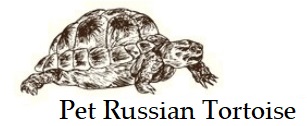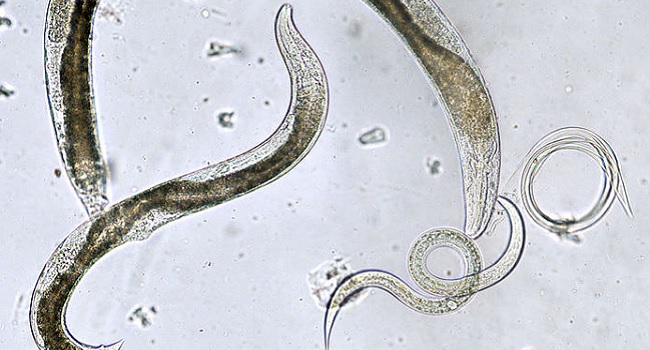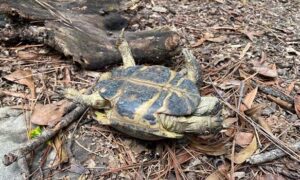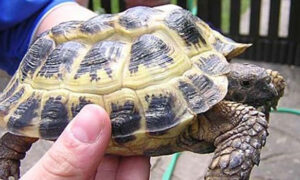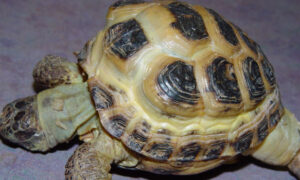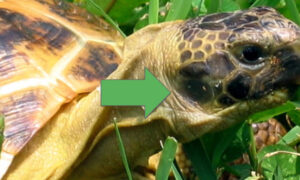Russian tortoises get worms through contaminated food or substrate. By ingesting the contaminated food or substrate or even poop, your Russian tortoise can become infected. This is why it is very important to keep the enclosure clean and to quarantine new tortoises before introducing them to your existing pets.
Signs Russian Tortoise Has Worms
Depending on how bad the worm infection is, you may see worms or worm fragments in your Russian tortoise’s poop. You may see tiny white string-like objects in the dark poop.
Other signs that your Russian tortoise has worms may include, lethargy, lack of appetite and reluctance to drink water. In more severe cases, you may notice diarrhea and/or vomiting.
How Do I Know If My Tortoise Has Worms?
If your Russian tortoise has an acute case of worms, you may not notice any signs. However as the worms continue to lay eggs, you will begin to see noticeable signs.
The first signs of worms in tortoises are changes to appetite and activity level. Severe signs will include diarrhea and vomiting. And in some cases, you will actually see the worms in the tortoise’s poop.
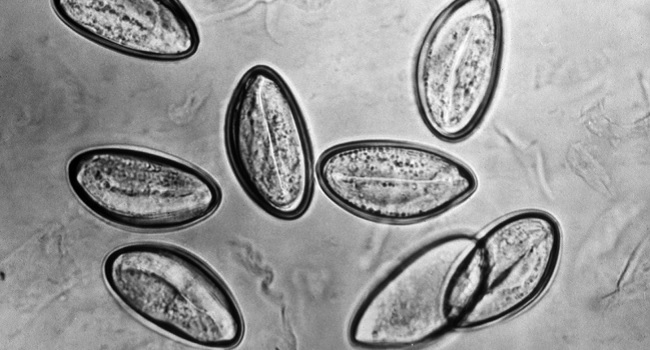
How Do You Treat Worms in Tortoises?
If you notice worms in your tortoise’s poop or if you think your Russian tortoise has worms based on other signs, you will want to seek veterinary care. The reptile vet will likely ask for a fresh stool sample that will placed under a microscope to determine if your tortoise has worms. If your tortoise has worms, the veterinarian will be able to determine what kind of worms your tortoise has and what treatment will be required.
The most common worm treatment in tortoises is Panacur (Fenbendazole). Panacur kills common worms. However, it doesn’t kill the eggs, which is why the veterinarian will likely have you administer the medication over a course of several days until all traces of newly hatched worms have been eradicated. In some cases, you may have to do a repeat dose after a week or two has past.
Make sure to complete the treatment in full. If you do not fully complete the treatment, you will not eradicate all of the worms.
Will Pumpkin Treat Worms in Tortoises?
There are many sources that say only the pumpkin seeds offer de-worming properties for tortoises. Other sources, claim the pumpkin meat is the actual wormer. However, pumpkin may only aid very mild cases of worms.
The best treatment for worms in Russian tortoises is going to be Panacur from your veterinarian.
Dangerous Worming Medication for Tortoises
Although Ivermectin and Albendazole are popular medications for worming dogs and cats, neither are safe for tortoises and can be fatal.
